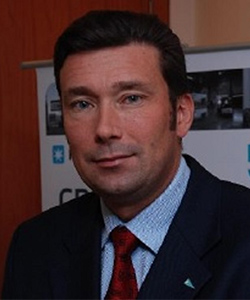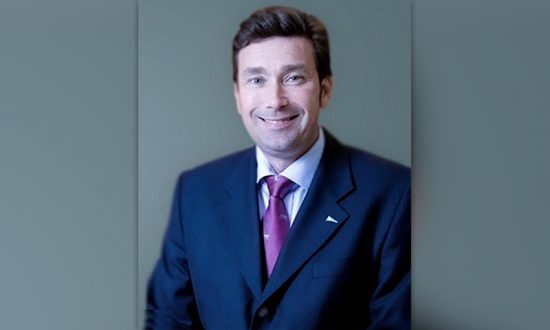Jakob Friis Sørensen, Managing Director at APM Terminals Pipavav, is an industry expert with immense experience in the global logistic industry. A Danish national, Mr Sørensen has been a part of A.P. Moller Maersk Group since 1987. During his career with Maersk, Jakob has performed a range of roles in both the shipping and logistics side of the business, as well as performing country and area management roles.
“Rather than striving for a perfect picture, dive in pragmatically” – Patrick Verhoeven. In words of Mr Verhoeven, with varying contexts, nevertheless; sustainability has become a common global language. If there is a common cord that the world is in-sync with right now, its sustainability.
There is much spoken and written about sustainability. We see it implemented across industries, sectors, regions and countries. Sustainability in business is no more a textbook concept, it has transcended from simple conversations to the strategical deployment of tactics and achieving a sustainable business environment. It has been an underlying fact which has been overlaid by several other pillars of business operations; however intact and an underlining one. Sustainability today is not just discussed in boardrooms but is enacted and performed as a crucial part of a healthy functioning business.
This year indeed has brought the world to a pause, it is making us rethink our lives, amidst not only the pandemic but otherworldly events. All of this has now lead to sustainability, becoming the new business reality. Sustainability is not only essential in today’s world but also when we think of our lives in the future. In today’s age, the organizations have to integrate sustainability in their daily business operations and prepare a strategy that supports business objectives and ensure meaningful contribution to UN Sustainable Development Goals.
When the United Nations launched ‘The World Ports Sustainability Program (WPSP) in 2018’ they aimed at contributing to the sustainable development of world ports in line with their sustainability agenda and its 17 Sustainable Development Goals (SDGs). The mission was to demonstrate global leadership of ports in contributing to the SDGs. For organizations today, it is pivotal to understand the initiatives undertaken by WPSP and come forward and contribute to their and the sector’s sustainable business development. According to a new study by Earth’s Future, a peer-reviewed scientific journal focusing on climate change and future sustainability, seaport footprints will need to expand by approx. 3,700 sq. km globally in the next three decades to cope up with the combination of sea-level rise and increasing demand. In such a scenario, the need for sustainability is all the more pronounced.
In the process, we need to realize that there are implications of activities that an organization undertakes which connects all stakeholders; internal and external. The aim of WPSP is to empower the port community to engage with stakeholders such as business, government and society and create sustainable added value for the local communities surrounding the port. However, it is the responsibility of an organization to pay attention to developing trends and realities of the changing environment. This ultimately needs to be adapted and practised with an eventual aim of attaining sustainability and cohesive partnership between the present-day actions and the expected future results.
Ports sector being major contributors to international trade; has a primary responsibility towards its associated stakeholders’ community. As a part of HSSE (Health, Safety, Security & Environment) policy, Ports have to ensure activation of a number of initiatives such as safe disposal of bio-medical waste, reusing treated wastewater etc. Tree plantation is a crucial factor in curbing carbon emission. This is a long term and continuous process that enables greener and healthier planet and gives a massive push towards achieving the sustainability norms. Ports need to act to strengthen resilience and adapt their infrastructure and relevant operations to the changing climate. In sync with our global objectives of integrating sustainability in all of our operations, APM Terminals Pipavav also has undertaken ‘Gujarat Green Gateway’ initiatives through the philosophy of ‘reduce, reuse and recycle’ that aims to enable inclusive trade through advanced infrastructure, technology and digitization; thereby improving the livelihood of communities around the port through initiatives like skill development, women empowerment etc.
Manpower is indispensable. Hence, employees and human force in and around a functioning business prove not only to be a crucial asset to your business but also are a business’s prime responsibility. Ensuring their well-being and support is as crucial as attending to a financial matter of an organization. Reduced usage of carbon footprints and utilizing the resources in the best way through the philosophy of ‘reduce, reuse and recycle’ helps in boosting the work ethic and livelihood of the employees and the surrounding communities. Apart from paying attention to the basic needs and requirements of the society, being able to provide inclusive trade through advanced infrastructure, technology and digitization that improves the livelihoods of the community through initiatives like skill development, women empowerment etc. is another contribution we can mark.
Well, before the pandemic arrived, more and more businesses were rousing to the powerful opportunities between sustainability and innovation. The closer that product teams can collaborate with the sustainability team to launch products that customers are increasingly demanding; the better. In times of crisis, innovation becomes even more critical to assist businesses to prevail, and attention on sustainability can make sure that this innovation is unleashed to serve the greater good because innovation in and of itself isn’t inherently sustainable or deployed for the greater good.
Technology will play an exceptional role in change. The internet, big data, artificial intelligence and blockchain are at the heart of companies’ digital transformation. They are also vital to sustainability, permissive data acquisition, storage and curation, insight, analysis, trust and accountability that companies need to evaluate their compliance with environmental, social and governance standards. Today, the initiatives undertaken by an organization have to be in sync with the global objective of integrating sustainability in daily business activities. This further should be integrated towards commissioning of continued commitment to all stakeholders as a responsible partner. Sustainability is no more just a differentiator; it has become a business requirement. In the forthcoming years, businesses will need to adapt and adjust to a host of new environmental, social and governance risks; if they don’t wish to face extinction. It is no longer a question of whether it is “necessary or not” to launch sustainable business practices, but rather how long will it take before consumers, investors, or governments punish businesses that do not.
More About Jakob Friis Sørensen

Over the years, Jakob Friis Sørensen has held various positions within the Group in Maersk Line, Maersk Logistics and Damco in countries like Indonesia, Singapore, Malaysia, Japan, and India. His long history of delivering high performance in developing markets of Asia makes him an ideal choice to lead APM Terminals Pipavav into the next stage of its development journey.
With a vast experience in spearheading operations in APAC nations, Mr Sørensen has an in-depth knowledge of the SCM (Supply Chain Management) processes. He holds an MBA from Henley Management College, London and has attended several Executive Management courses at IMD, Lausanne, Penn State University in the US. During his free time, he enjoys sports such as football and swimming and exploring history while travelling in various countries.


